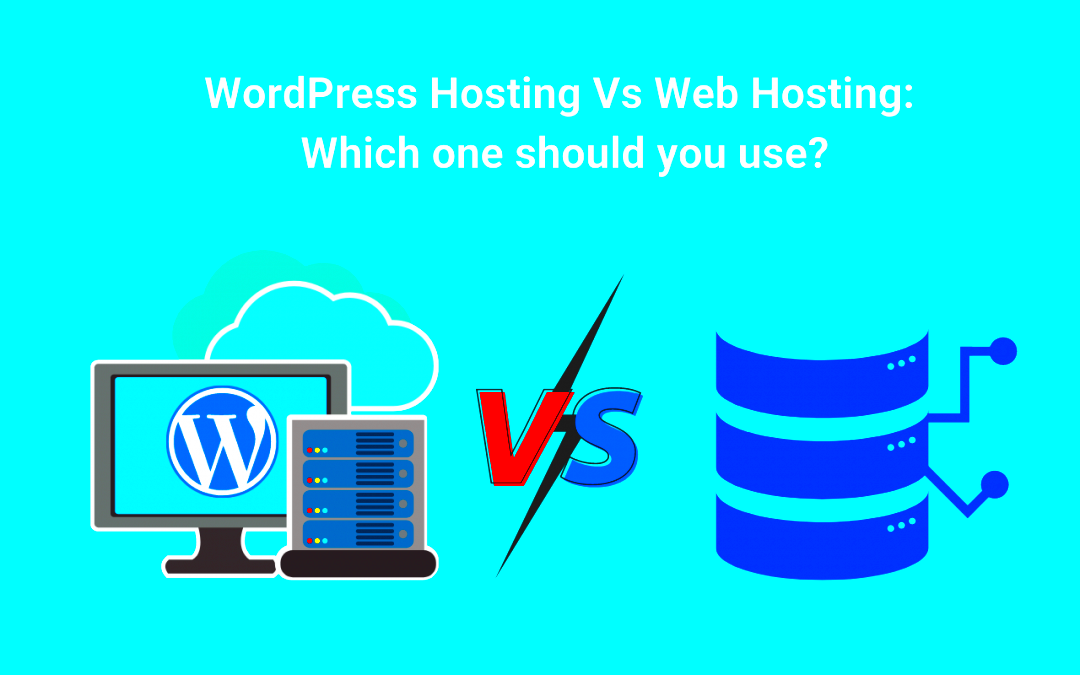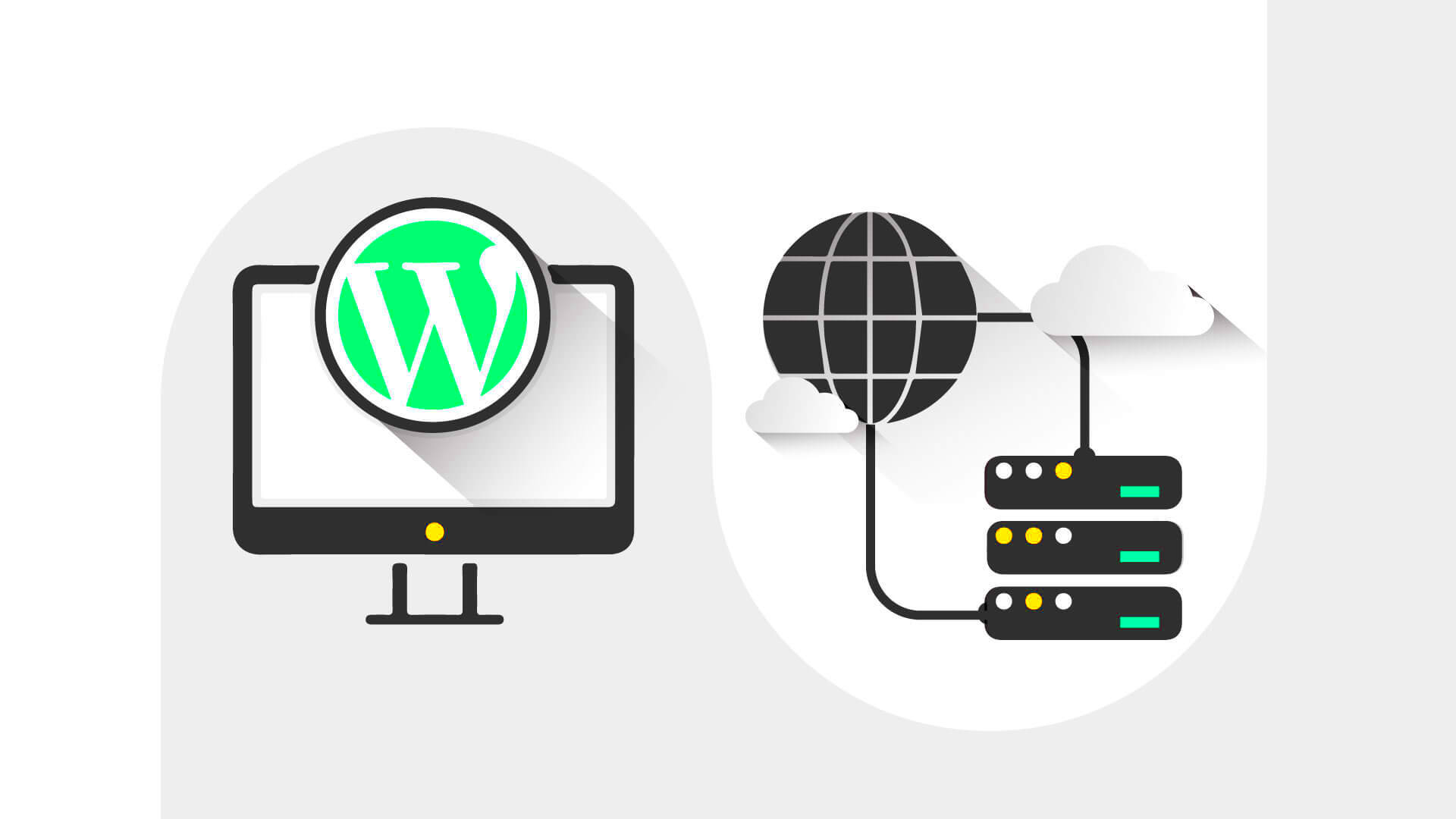Have you ever wondered if WordPress hosting is the same as general web hosting? You’re certainly not alone! Many of us dive into the digital ocean without fully understanding the varieties of hosting services available. In this article, we’ll explore the distinctions between WordPress hosting and traditional web hosting, so you can make an informed choice that best suits your needs.
Understanding Web Hosting

At its core, web hosting is the service that allows individuals and organizations to make their websites accessible on the internet. Think of it as renting a space on the internet where you can store your website files, images, content, and everything else that makes your site functional. Here’s a breakdown to help you understand better:
- Types of Web Hosting:
- Shared Hosting: Many websites share the same server resources. Affordable, but can lead to slower performance during traffic spikes.
- VPS Hosting: A middle-ground option where you have dedicated resources on a virtual server. It offers better performance than shared hosting.
- Dedicated Hosting: You get an entire server to yourself. This is powerful but comes with a higher price tag.
- Cloud Hosting: Uses multiple servers to host your site, offering flexibility and reliability, with costs based on usage.
When you opt for web hosting, you’re essentially choosing a server where all your site data will live. Key features to look out for include:
| Feature | Details |
|---|---|
| Uptime Guarantee | Measures how much time your website is operational, ideally 99.9% or higher. |
| Customer Support | Look for 24/7 support to resolve any issues quickly. |
| Storage & Bandwidth | Assess how much space and data transfer your website will require. |
Knowing these basic concepts can greatly aid in determining which type of hosting solution will serve your needs best! Now, let’s dive deeper into the world of WordPress hosting to uncover its unique features and benefits.
What is WordPress Hosting?
WordPress hosting is a special type of web hosting tailored specifically for WordPress websites. Unlike general web hosting services, which are designed to support a variety of website platforms,
One of the key features of WordPress hosting is its ease of use. Most providers offer one-click installation, allowing you to set up WordPress in a matter of seconds. This is especially beneficial for beginners who may not have technical expertise. Additionally,
- Regular backups to protect your data
- Malware scanning and removal services
- Firewalls specifically designed for WordPress
Another standout feature is performance optimization. WordPress hosting typically includes:
- Content Delivery Networks (CDNs) that speed up loading times
- SSD storage for quicker data access
- Caching mechanisms to improve speed and efficiency
Lastly, customer support is often tailored specifically to WordPress issues, offering a solid safety net when things go awry. Overall, if you’re looking to host a WordPress site, investing in WordPress hosting can lead to a smoother and more efficient online experience.
Key Differences Between WordPress Hosting and Web Hosting
When we dive into the differences between WordPress hosting and traditional web hosting, several key factors come into play that can help you make a more informed decision when setting up your website.
| Feature | WordPress Hosting | Web Hosting |
|---|---|---|
| Optimized for WordPress | Yes, specifically tailored settings and features | No, general configurations for various platforms |
| Installation Process | One-click installation | May require manual setup |
| Security Features | Enhanced security with daily backups and specialized measures | Standard security; additional measures may need to be added manually |
| Performance Optimization | Integrated caching, CDNs, and SSD storage | Performance varies; may require additional setup |
| Customer Support | WordPress-specific assistance | General support for multiple platforms |
As you can see, while both options serve the purpose of hosting a website, WordPress hosting offers distinct advantages if your primary platform is WordPress. These specialized services not only streamline the process but also enhance the security and performance of your website. So, if you’re running a WordPress site, investing in WordPress hosting is usually the way to go!
Types of WordPress Hosting
When discussing WordPress hosting, it’s important to recognize that it’s not a one-size-fits-all solution. There are several types to choose from, each tailored to meet varying needs. Let’s dive into the major types of WordPress hosting!
- Shared WordPress Hosting
- Managed WordPress Hosting
- VPS (Virtual Private Server) WordPress Hosting
- Dedicated WordPress Hosting
- Cloud WordPress Hosting
Shared hosting is the most common and economical option. In this setup, multiple websites share the same server resources. It’s perfect for beginners or small blogs with low traffic. However, you might face limitations when it comes to performance and security.
This is a more premium option where hosting providers take care of the technical aspects for you. With managed WordPress hosting, updates, backups, and security measures are handled by the host. This lets you focus on creating content rather than worrying about server maintenance.
VPS hosting offers a balance between shared and dedicated hosting. In this setup, your website resides on a virtual private server, giving you allocated resources. This is ideal for growing sites that need more power without the high costs of dedicated hosting.
With dedicated hosting, you have an entire server to your website, which means optimal performance and enhanced security. It’s generally recommended for high-traffic sites or businesses with specific server requirements. However, this is also the most expensive option.
This type of hosting scales according to your traffic needs. You utilize multiple servers, which means if one goes down, another can take over. It’s a flexible choice as it allows you to pay only for the resources you use. Perfect for websites that expect fluctuating traffic.
Benefits of Using WordPress Hosting
Now that we’ve covered the various types of WordPress hosting, let’s explore the many benefits they bring to the table. Having the right hosting can make a world of difference for your website!
- Optimized Performance
- Enhanced Security
- Automatic Updates
- Expert Support
- Scalability
WordPress hosting is specifically tailored for WordPress websites. This means faster load times and better overall performance compared to generic hosting. Your visitors will appreciate a snappy website.
With WordPress hosting, you’ll often find enhanced security measures to protect against common threats. Many providers offer built-in firewalls, malware scans, and automatic updates, keeping your site safer.
One of the biggest perks is that many WordPress hosting services will automatically update your WordPress version and plugins. This means you’ll always have the latest security features and improvements without lifting a finger.
When you choose WordPress hosting, you’re often working with a provider that specializes in WordPress. This means their customer support team has in-depth knowledge about the platform, allowing for faster and more effective troubleshooting.
As your website grows, so do your hosting needs. WordPress hosting often offers seamless upgrades to higher-tier plans. It’s easy to scale without the hassle, accommodating increased traffic or more complex needs.
In summary, choosing the right type of WordPress hosting can significantly boost your site’s performance and security, giving you peace of mind and allowing you to focus on what you do best: creating amazing content!
When to Choose WordPress Hosting Over Standard Web Hosting
Choosing between WordPress hosting and standard web hosting can feel like navigating a maze, especially when you’re not entirely sure what you need for your website. Let’s break it down to simplify your decision-making process.
1. If You’re Using WordPress: This one seems obvious, but it’s crucial. If your site is built on WordPress, selecting a hosting provider that specializes in WordPress can enhance your website’s loading speed and overall performance. Many WordPress hosts offer optimizations tailored specifically for the WordPress platform.
2. If You’re a Beginner: New to website creation? You might benefit from managed WordPress hosting. These services often include automatic updates, security monitoring, and customer support tailored to WordPress, making it a hassle-free option.
3. If You Need Scalability: If you anticipate rapid growth—like a blog that might go viral—WordPress hosting typically provides scaling options that allow you to handle more traffic effortlessly. Standard web hosting may not offer the same level of scalability.
4. If You Prioritize Security: WordPress hosting often includes added security measures specifically designed to safeguard your WordPress site against threats. Features like daily backups, malware scanning, and firewalls are commonly provided.
5. If You’re Using Plugins and Themes: Many WordPress hosting providers offer pre-installed plugins and themes, saving you time and effort. They’ll often be optimized to work seamlessly with their servers, enhancing your website’s functionality.
So, if any of these points resonate with your website’s needs, it may be time to consider WordPress hosting over standard web hosting!
Conclusion: Making the Right Choice for Your Website
In the end, the choice between WordPress hosting and standard web hosting boils down to a few key considerations: your website’s purpose, your technical skill level, and your budget. Let’s recap:
| Factor | WordPress Hosting | Standard Web Hosting |
|---|---|---|
| Best for WordPress Sites | ✔️ | ❌ |
| Ease of Use for Beginners | ✔️ | ❌ |
| Security Features | ✔️ | ❌ |
| Performance Optimization | ✔️ | ❌ |
| Cost | Generally Higher | Generally Lower |
Ultimately, if you’re running a WordPress site and need tailored support and performance, WordPress hosting is a no-brainer. However, if you’re looking for something simple and broad that can host various types of websites, standard web hosting may be more suitable. Whichever path you choose, understanding your specific needs will guide you to the best decision for your website’s success. Happy hosting!



